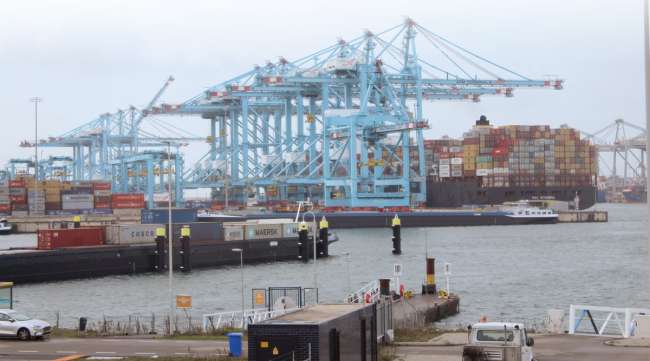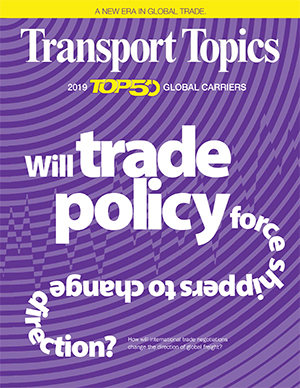Managing Editor, Features and Multimedia
The 2019 Top 50 Global Freight Carriers: Growth Continues Despite Trade Tensions

[Stay on top of transportation news: Get TTNews in your inbox.]
The majority of the world’s largest freight carriers expanded their businesses last year as they continued to enjoy strong demand in many key markets, despite an ongoing realignment of international trade agreements.
All but a handful of the companies ranked on the 2019 Top 50 Global Freight Carriers list posted higher freight revenues in 2018 than the previous year.
The future, however, remains clouded by uncertainty as the United States and other nations rework their trade policies.
Some shippers already have built up inventories and have adjusted their supply chains to hedge their bets against the threat of potential tariffs stemming from ongoing U.S.-China trade tensions.
Meanwhile, national leaders in North America have negotiated the United States-Mexico-Canada Agreement to replace the North America Free Trade Agreement, but the new pact still requires approval by each country’s legislature.
And in Europe, the United Kingdom’s winding road toward withdrawal from the European Union also has major implications for the flow of goods.
As for the Top 50 list, FedEx Corp. and UPS Inc. remain neck and neck at Nos. 1 and 2, respectively, with both parcel giants achieving significant growth in freight revenue over the previous year.
The list ranks freight carriers from around the world regardless of mode, including truck, rail, ocean and air cargo.
China Railway Corp., the world’s largest freight rail operator, checks in at No. 3, while The Maersk Group, the largest ocean freight carrier, ranks No. 4.
Eight of the largest trucking companies in North America also appear on the list: No. 25 XPO Logistics, No. 26 J.B. Hunt Transport Services, No. 29 YRC Worldwide, No. 30 Knight-Swift Transportation, No. 34 Schneider, No. 35 Old Dominion Freight Line, No. 37 TFI International and No. 46 Estes Express Lines.
This year’s list features three newcomers.
General Logistics Systems, which debuts at No. 36, is a Netherlands-based parcel service that operates 26,000 vehicles in 41 European countries and parts of the western United States.
No. 47 Qatar Airways, best known as a passenger airline, derives 21% of its revenue from its global freight business.
Luxembourg-based Cargolux, another provider of air cargo transportation services, joins the list at No. 50.
Transport Topics produces the annual Top 50 Global Freight Carriers list in cooperation with S.J. Consulting Group.
The rankings are based on each company’s annual freight revenue for the most recent 12 months. Foreign currencies are converted to U.S. dollars based on the average exchange rate during that period.
This year’s Top 50 includes 14 ocean carriers, more than any other mode. Railroads were next with 12 companies, followed by parcel with 10, trucking with eight and air freight with six.
Fourteen of the 50 carriers have headquarters in the United States. Six are based in Japan, four each in China and Germany, and three in Canada.
Combined freight revenue for all of the Top 50 carriers increased to $623.9 billion, up from $573.8 billion for the carriers that appeared on last year’s list.
Want more news? Listen to today's daily briefing:





